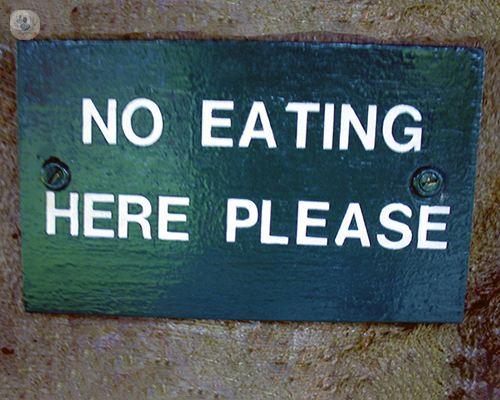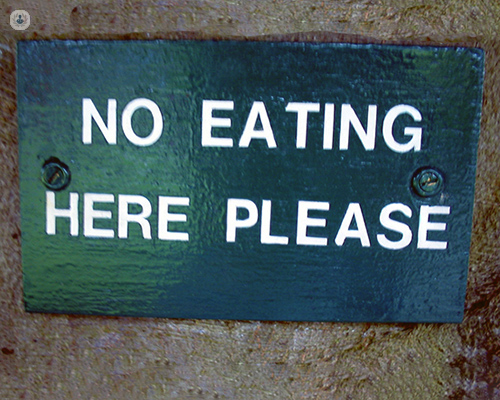
Busting the myths: You shouldn’t eat or drink before and after an operation
Traditionally, patients of all kinds of surgery remain ‘nil-by-mouth’, meaning they cannot eat or drink anything, for 12 hours before surgery. Patients having abdominal and colorectal surgery, such as gallbladder surgery, bowel cancer surgery, and all kinds of bariatric surgery were often not permitted to eat anything for up to a week after an operation.

Myth:
The bowel stops working for up to seven days following surgery.
It was believed that the bowel stops working for up to seven days after general anaesthetic. The shock to the body of going through surgery can lead to certain systems of the body stopping, and taking some time to get back to normal.
Busted:
Loading up on carbohydrates can bump-start your body.
A new surgical approach called Enhanced Recovery (ER) finds that eating up to six hours before the operation, loading up on high-energy carbohydrate drinks two hours before the operation, and eating as soon as possible after the operation can help speed up recovery.
Myth:
You can breathe food from the stomach into the lungs while under anaesthetic.
Another reason for going nil-by-mouth before an operation was the risk that the patient could inhale undigested food that makes its way from the stomach back into the throat, and inhaled into the lungs.
Busted:
The risk of choking is minimal.
Although there is a risk of choking, it is minimal. The benefits of eating 6 hours before the operation, and taking in high-energy drinks two hours before outweigh the risks of choking.
Myth:
You should rest following an operation
After being nil-by-mouth and going through an operation, a patient can go through dramatic weight-loss. Recovery times are longer as the patient doesn’t have the energy needed for recovery.
Busted:
With Enhanced Recovery, the patient is encouraged to be up on their feet after surgery.
With the patient drinking energy drinks before the operation, and eating as soon as possible afterwards, the body has the energy to recover quicker. The patient is encouraged to be out of bed and moving as soon as possible. The increased energy and exercise aids recovery.

